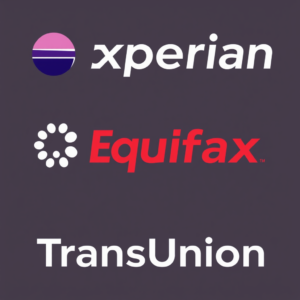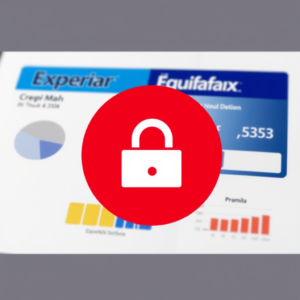Ways to Improve Your Credit Scores in 2025 will the focus in this article. For a person to be financially stable in 2025, there are several initiatives that you are required to implement at the individual level. There are 14 ways to improve your credit scores in 2025. These ways will help boost your credit report and, in turn, improve your credit scores. Hence, it gives you the best deals on goods and services like mortgages, clothing, restaurants, gas, mobile phones, etc. Credit cards are vital, and a good credit score shows how healthy your credit report is. Below are the ways to improve your credit scores in 2025.

1.0 Register to Vote
Registering to vote is among the ways to improve your credit scores in 2025 in the United Kingdom. This is a key and straightforward approach you must do as long as you are eligible to vote. It is worth doing it so you can vote in the democratic process in the UK.
Registering to vote is a good start to a credit report because it shows that you are who you say you are and live at the address you indicate or provide during the credit application process. Only United Kingdom citizens are eligible to vote in the United Kingdom. If you are a UK citizen who has not lived in the United Kingdom for a while, you can’t vote.
You can ask them to add that information to your account so that they might ask for proof of address and other related requirements. But you can make that request and get that added. It would help if you did that on each of the three credit reference agencies in the United Kingdom.
The major credit reference agencies in the UK are Experian, Equifax, and TransUnion. These organizations collect and maintain financial data on individuals, such as credit accounts, payment histories, and public records, to provide credit reports and scores. Lenders and service providers use this information to assess creditworthiness when offering loans, credit cards, mortgages, or other financial products. Each agency operates independently, meaning credit data and scores may vary between them, making it important for individuals to check their reports from all three for accuracy.

1. Check Your Free Credit Report & FICO® Score – Experian
2. https://www.bing.com/ck/a
3. TransUnion
2.0 Pay Your Bills Timely
The next one is to pay your bills on time; if you have a deadline to make a payment for whatever it might be, make sure you do it because that demonstrates to anyone who checked your credit report anyone who might want to lend you money that you can make a timely repayment if they were going to lend to you would hopefully do the same thing again. The simple way is to set up direct debit payments, meaning the money will come out of your account monthly. All payments will be processed automatically when you put them on a direct debit card.
3.0 Pay Bills in Full (Pay the full Amount)
Paying bills in full is one of the ways to improve your credit scores in 2025, and it is essential to make sure that you pay the full amount when you pay those bills. Paying the full amount demonstrates to prospective lenders that you are not struggling and have enough money to pay the pending bills off monthly.
4.0 Be Consistent
Among the 14 ways to improve your credit scores in 2025 is to be consistent in your applications, especially when you put the details in your address, phone number, and other information. Make sure it is the same information/details every time you do, including your name. Consistency in your application is crucial because it shows that you are the same person. If you are not consistence with your personal details there is a high chance that this will trigger further inquiries, and they think something wrong is happening, particularly regarding personal addresses.
5.0 Check Your Credit Report
One of the best ways to improve your credit scores is to monitor and review your credit reports. Monitoring and reviewing your credit report costs you nothing; hence, ensure you review your credit reports regularly. First of all, look at any inconsistencies in the report, review it to determine if you have an old account or address you might have forgotten about, but it is still open, and you do not use it.
Go to providers such as credit card companies, banks, mobile phone companies, and whomever it might be to update those addresses. When you are checking it, look for anything else that seems wrong, any errors, or mistakes. Generally, make sure everything is all okay. An example of credit report.

6.0 The Duration of time different providers registered on your credit report.
The duration of time you’ve been with a specific provider, as recorded on your credit report, plays a significant role. A more extended relationship with a single provider reflects excellent stability and reliability, indicating that you are not frequently switching accounts.
Maintaining long-term accounts can positively impact your credit score. Therefore, it’s wise to review your existing accounts and consider keeping those you have had for a substantial period. Continuously switching providers may prevent you from reaping the benefits of long-standing relationships on your credit score and report.
7.0 Keeping a Credit Card for a long time
closing long-standing current accounts and credit cards is not always the best choice. With credit cards, the situation is different, and there’s no strict rule. Often, keeping a card even if you’re not using it can be beneficial because it demonstrates a long-term financial relationship with the respective bank or organization.
However, there’s another side to this. If you have too much available credit, such as a card with a high limit (say £1,000, £2,000, or more) that you’re not actively using, it could raise concerns with future lenders. They might view it as a risk, thinking, “This person already has significant credit available; do I want to add to that?” This sentiment could potentially lower your credit score.
In such cases, canceling an unused credit card might make sense. But there’s no universal rule what’s right for one person could be wrong for another. You need to weigh the pros and cons of keeping the card. On the downside, an open card might tempt you to overspend. If that’s a concern, closing it could help you avoid unnecessary temptation.
8.0 Credit utilization
A key tip for boosting your credit score is managing credit utilization, which is the percentage of your available credit limit that you’re using. For example, if you have two credit cards with a total credit limit of £1,000 and you’ve spent £100 on one and £400 on the other, your overall credit utilization is 50%. However, you also have individual utilization rates 20% on one card and 80% on the other.
Credit agencies recommend keeping your credit utilization below 30%, with lower percentages (like 20% or 25%) being even better. While your overall utilization is important, having one card nearly maxed out can negatively impact your score. Aim to keep individual cards below 50-60% if possible, even if your overall utilization is within the ideal range.
When deciding whether to cancel a credit card, consider its effect on your credit utilization. If your total credit usage is low and canceling won’t significantly impact this, it might not harm your score unless the card is very old, as longevity can also boost your credit profile.
9.0 Increase Your Credit Limit
If you’re concerned about your credit utilization, whether on individual cards or overall, there are a few steps you can take to manage it effectively. First, you could pay off part of your credit card balance earlier in the month to keep the utilization below 30%.
Another option is requesting a higher credit limit. While you shouldn’t use the additional credit simply because it’s available, increasing your limit can lower your utilization rate and improve your score. For example, doubling your credit limit from £500 to £1,000 per card could reduce your utilization from 50% to 25%, even if your spending habits remain unchanged.
10 Exploring Additional Reporting Options
Additionally, avoid too many hard searches on your credit report, as they signal lenders that you might be desperate for credit, which can lower your score. Use eligibility checkers—often available on credit card or loan comparison sites—to perform soft searches that won’t appear on your public credit report. This allows you to gauge your chances of approval without harming your score. Space out any hard applications, aiming for one every three months, if possible, as Experian recommends. This is particularly important if you’re planning a major financial application, like a mortgage, where you should avoid other hard searches for at least six months beforehand.
11 Use Your Credit Card Responsibly
Using a credit card responsibly can also improve your credit score. While some people may view credit cards negatively, they can be valuable tools if used correctly. Make small purchases you can afford and pay off the balance in full each month. This demonstrates financial responsibility and builds your credit history over time. If you’re new to credit or rebuilding your score, consider applying for a credit-builder card. Be cautious, as these often come with high interest rates, so paying off the balance in full is essential.
If you’re a renter, consider reporting your rent payments to credit agencies through services like Canopy or Credit Ladder. These platforms can help demonstrate your reliability with regular payments, boosting your credit profile. Lastly, Experian Boost allows you to share data from your current account, such as council tax payments, savings habits, or subscription payments, to enhance your credit score instantly. However, its impact on lender decisions remains uncertain.
Conclusion
By taking these steps managing credit utilization, spacing out applications, responsibly using credit cards, and exploring additional reporting options you can steadily build and maintain a strong credit score.
Also Read:
TOP 10 Secured Credit Cards for Building Credit in the United States of America



Be the first to comment